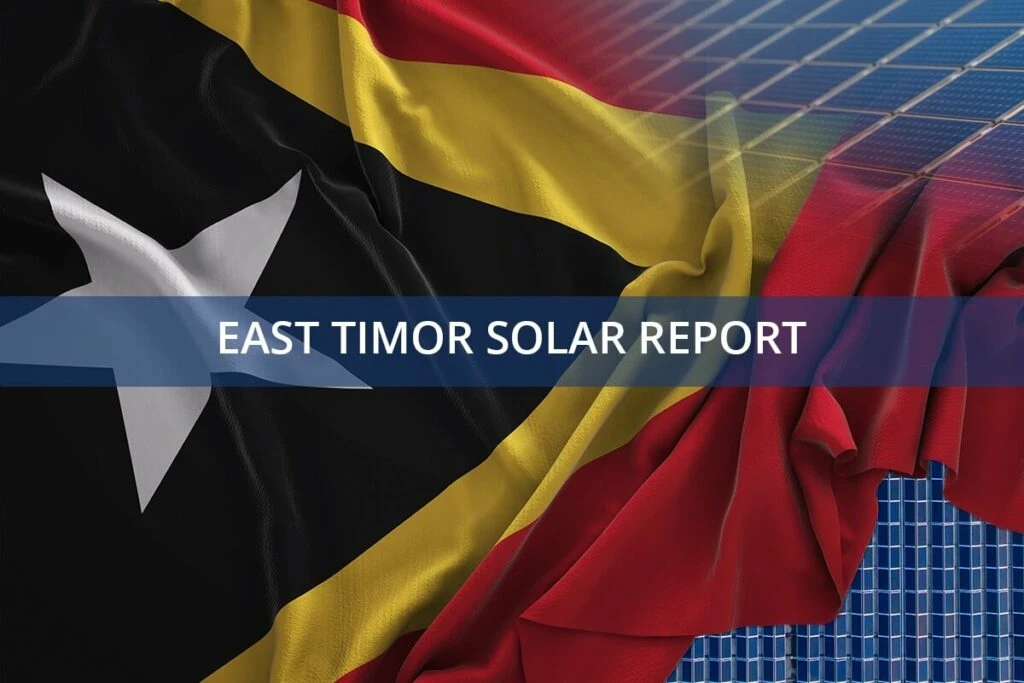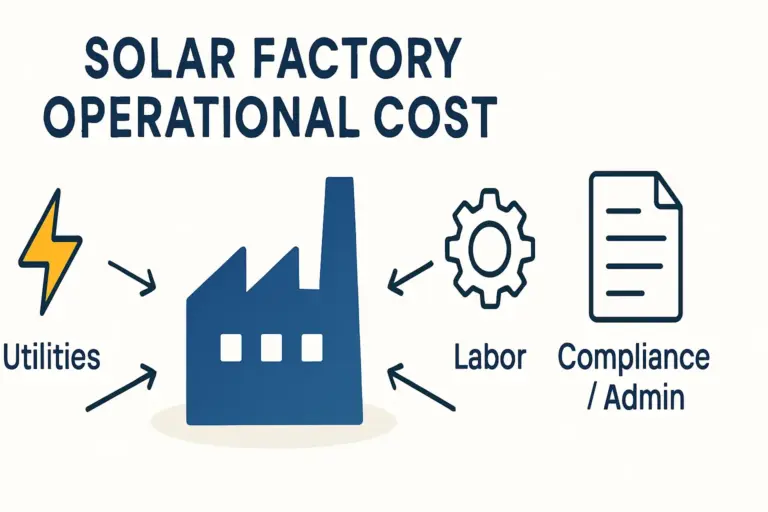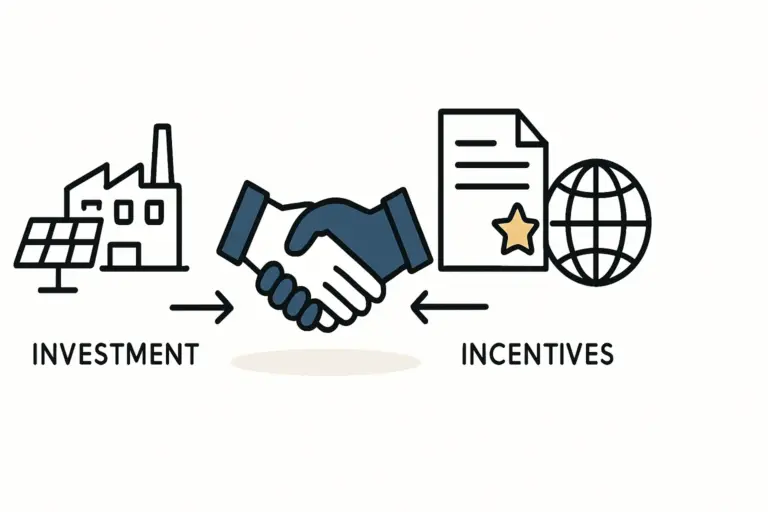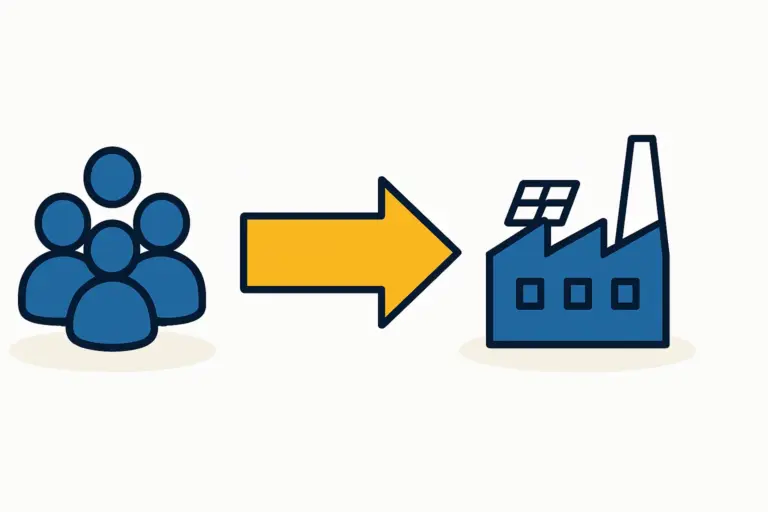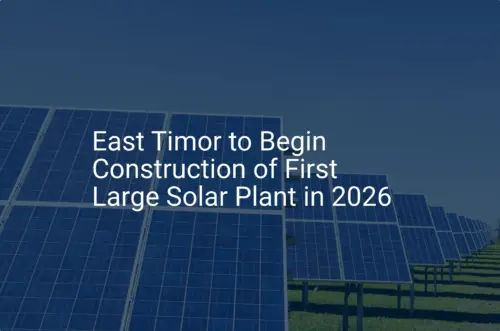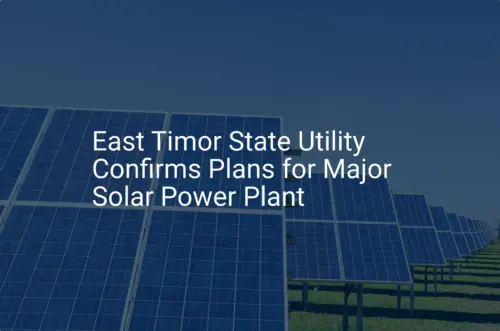For international entrepreneurs, emerging markets present a compelling mix of opportunity and risk, especially when it comes to navigating unfamiliar regulations. With its strategic goals for economic diversification and renewable energy, East Timor (Timor-Leste) offers a structured path for foreign investment.
However, establishing a manufacturing facility like a solar panel assembly plant requires a clear understanding of the legal and administrative procedures. This guide lays out a step-by-step roadmap for registering a foreign-owned solar factory in East Timor, covering the key agencies, required licenses, and necessary permits to take you from initial company formation to final operational clearance.
The Regulatory Framework: Key Institutions and Laws
Before beginning the registration process, it’s essential to understand the key institutions and laws governing foreign investment in East Timor. While the system is designed to be streamlined, each agency plays a specific role, and navigating them correctly is crucial.
The primary legal foundation is the Foreign Investment Law (Law No. 20/2017). This law guarantees foreign investors the same rights and duties as national investors, ensures protection against expropriation, and permits the repatriation of profits. For investors seeking specific benefits, it establishes a minimum investment threshold of US$1.5 million.
The key government bodies an investor will interact with are:
-
SERVE, I.P. (Serviço de Registo e Verificação Empresarial): As East Timor’s ‘single window’ or one-stop shop, SERVE centralizes and simplifies all procedures for establishing a company.
-
TradeInvest Timor-Leste: The country’s investment and export promotion agency, TradeInvest is responsible for evaluating investment proposals and issuing the Private Investment Certificate (PIC), which grants access to tax and customs incentives.
-
National Directorate for Pollution Control and Environmental Impact (DNCPIA): As part of the environmental authority, this directorate oversees the environmental licensing process, a critical step for any industrial or manufacturing project.
Step-by-Step Registration and Permitting Roadmap
The path from a business concept to a fully licensed solar factory follows a logical sequence of approvals. The flowchart below illustrates the high-level process, which the following sections break down in detail.
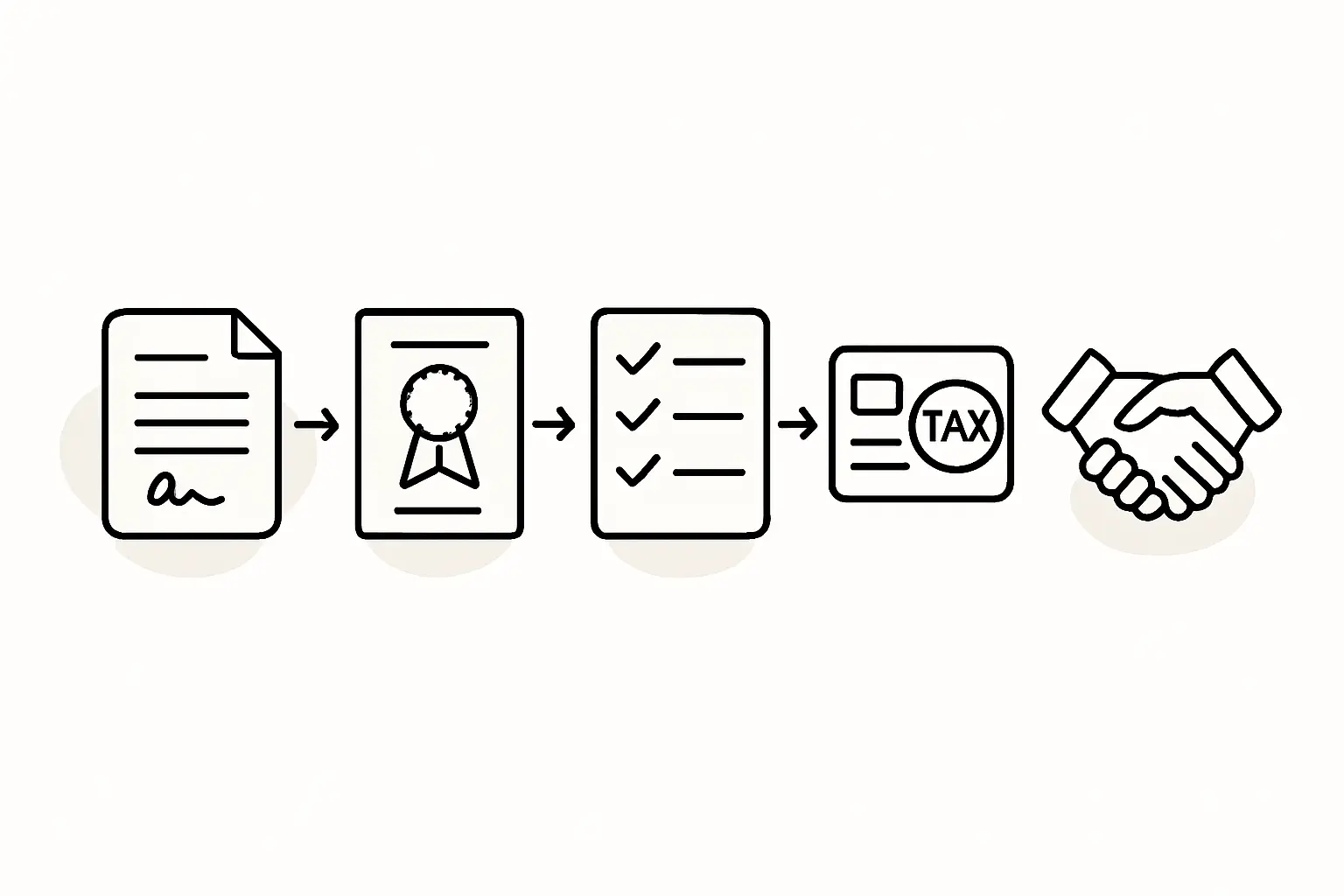
Phase 1: Company Registration with SERVE, I.P.
The process begins with the legal formation of your business entity, a phase managed entirely by SERVE, I.P.
-
Company Name Verification and Reservation: The proposed company name must be unique and is submitted to SERVE for approval.
-
Submission of Required Documents: For foreign investors, this typically includes notarized copies of passports, a police clearance or criminal record certificate from their country of origin, and proof of address. If a corporate entity is the shareholder, its articles of association and other corporate documents are also required.
-
Issuance of a Unique Registration Number: After successful submission and verification, SERVE issues a unique registration number, officially establishing the company.
-
Tax and Social Security Registration: SERVE simultaneously handles registration with the tax authority to obtain a Tax Identification Number (TIN) and with the social security system.
This phase typically concludes within a few weeks, resulting in a legally established company ready for investment-specific applications.
Phase 2: Securing Investment Incentives with TradeInvest
To benefit from the incentives offered under the Foreign Investment Law, an investor must apply for a Private Investment Certificate (PIC) from TradeInvest.
This application is more detailed than the initial company registration. It requires a comprehensive business plan, proof of financial capacity (often linked to the US$1.5 million threshold), and details about the project’s projected economic impact, such as job creation and technology transfer. TradeInvest evaluates the proposal’s alignment with national development priorities. A successful application yields a PIC, which is essential for obtaining tax credits, exemptions on customs duties for imported machinery, and other benefits.
Phase 3: Obtaining the Environmental License
For any manufacturing facility, the environmental license is arguably the most critical and time-consuming permit. This process is governed by Decree-Law No. 5/2011 and managed by the DNCPIA.
-
Project Categorization: The project is first classified into one of three categories. A solar module factory is likely to be Category A, requiring a full Environmental Impact Assessment (EIA), or Category B, requiring a less extensive Environmental Management Plan (EMP). The classification depends on the scale of production, location, and potential environmental footprint.
-
Submission of Environmental Studies: For a Category A project, a detailed Environmental Impact Statement (EIS) must be prepared by qualified experts. This document analyzes the potential environmental and social impacts of the factory—from raw material handling to waste disposal—and outlines mitigation measures. A deep understanding of the solar manufacturing process is fundamental to creating an accurate and comprehensive EIS.
-
Public Consultation: The EIA process includes a mandatory public consultation phase, where local community stakeholders and other interested parties can review the project and provide feedback.
-
Final Approval: The DNCPIA reviews the EIS and public consultation feedback before issuing the environmental license. This license is a prerequisite for obtaining a construction permit.
Phase 4: Acquiring Construction and Operational Permits
With the environmental license secured, the final set of permits can be obtained.
-
Construction License: Issued by the Ministry of Public Works, this permit requires the submission of detailed architectural and engineering plans for the factory. The environmental license must be presented as part of this application.
-
Industrial License: An Industrial License from the Ministry of Commerce, Industry, and Environment certifies that the factory’s operational plan complies with national standards and regulations.
-
Health and Safety Certification: The National Directorate of Labor Inspection must approve the facility’s health and safety plans to ensure a safe working environment for all employees.
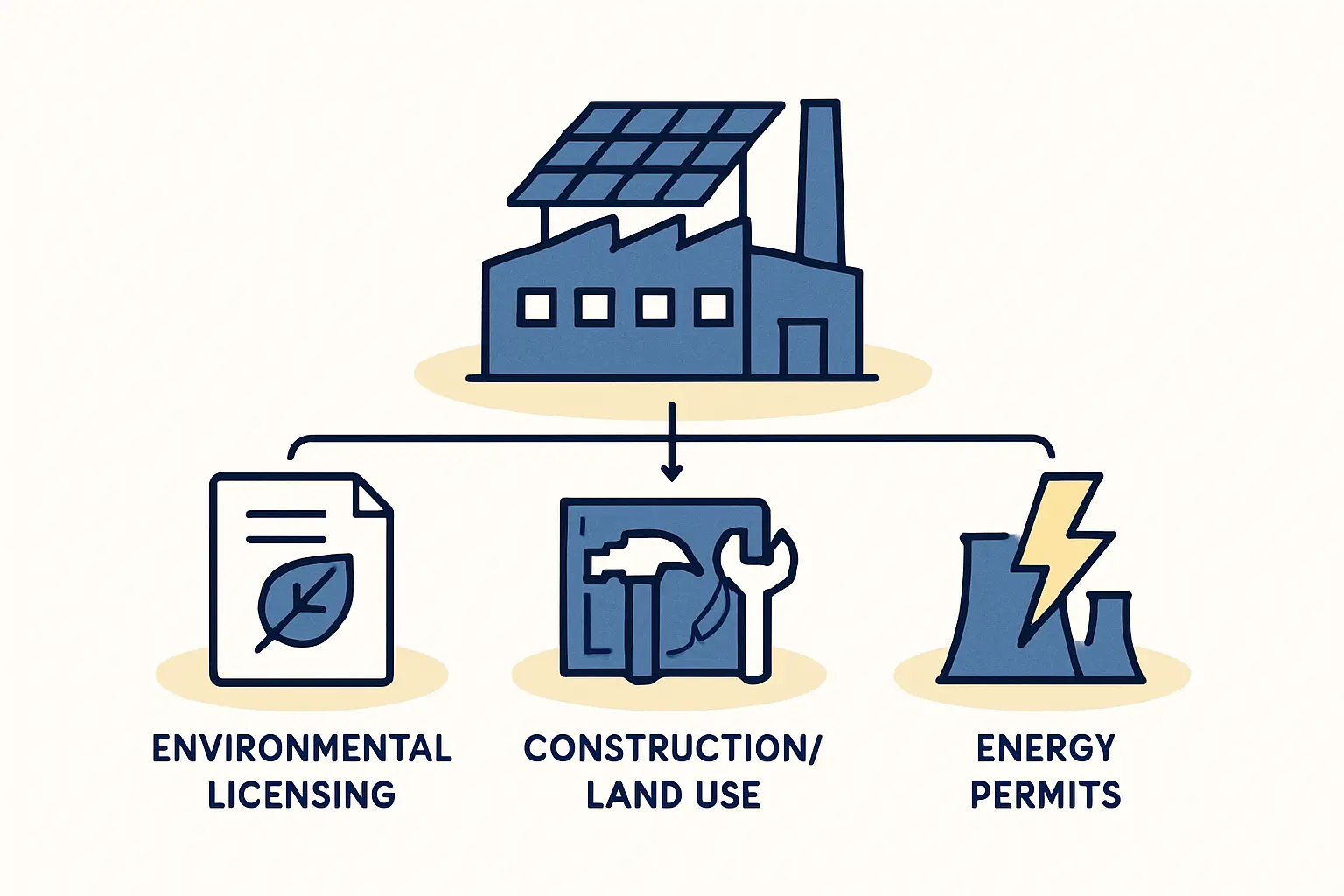
Typical Timeline and Investment Considerations
Based on experience from J.v.G. turnkey projects in similar regulatory environments, foreign investors should budget approximately 6 to 12 months to complete the entire registration and permitting process in East Timor. The environmental licensing phase is often the longest and most variable part of this timeline.
The minimum investment of US$1.5 million is a key figure to qualify for the most significant incentives via TradeInvest, though smaller investments are still permitted under the law without those specific benefits.
Common Challenges and How to Prepare
Although the process is well-defined on paper, foreign investors should prepare for potential challenges on the ground.
As project consultant Julius Etim notes, “Navigating the regulatory framework in a new market is often the first major hurdle. In Timor-Leste, the structure is surprisingly modern with its ‘single window’ system, but the on-the-ground reality requires meticulous preparation and local expertise.”
Common hurdles include:
-
Bureaucratic Delays: Administrative delays can occur unexpectedly, so building buffer time into your project plan is a prudent strategy.
-
Language Barriers: Although English is common in business circles, official documents and procedures are in Portuguese and Tetum. Professional translation and the support of a local representative are indispensable.
-
Regulatory Clarity: Specific requirements may not always be clearly documented. Engaging directly with the relevant agencies or a local consultant can provide crucial clarification.
Engaging a local legal representative or a consulting firm with experience in the region is invaluable for facilitating communication, ensuring documentary compliance, and navigating the nuances of the administrative culture.
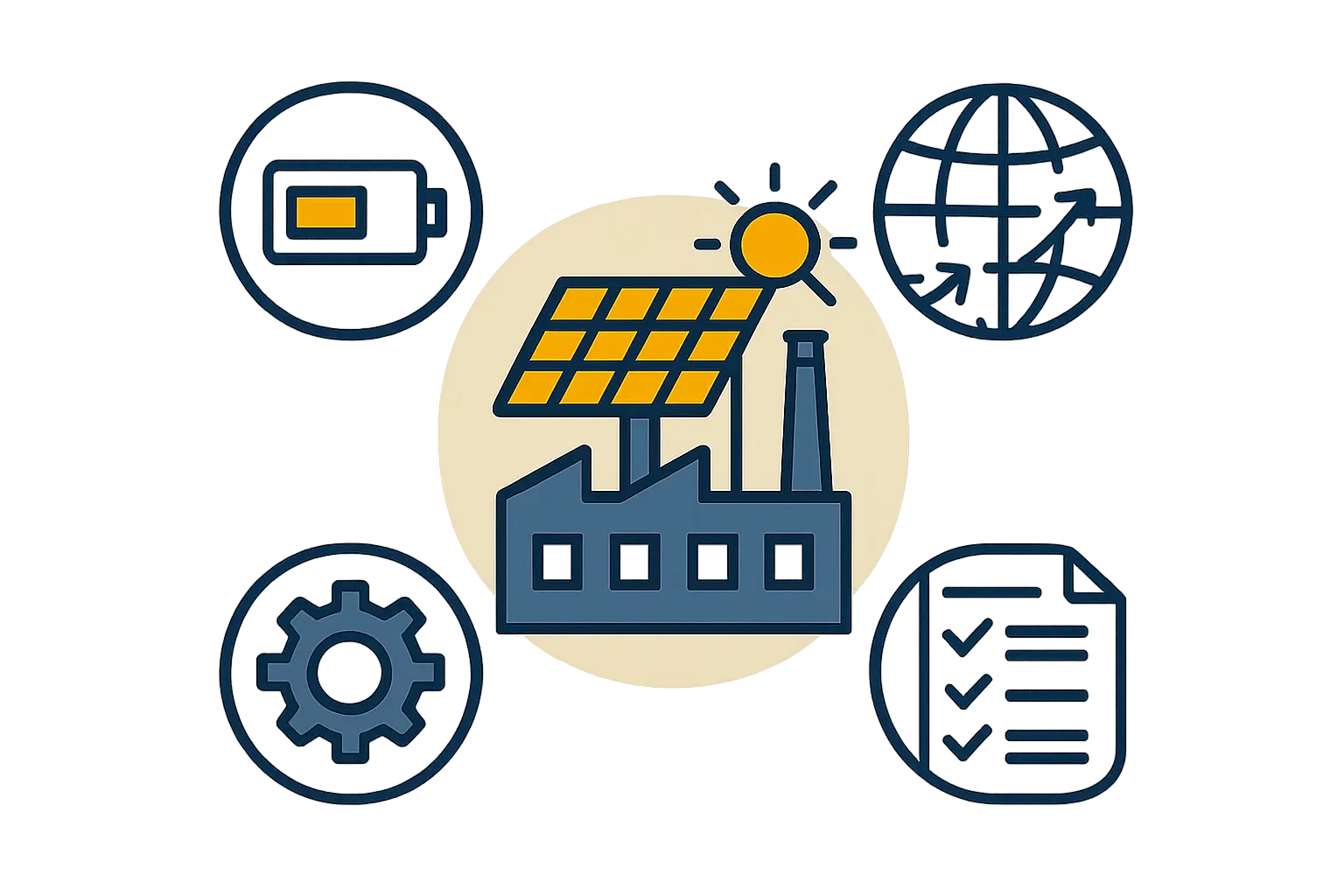
Frequently Asked Questions (FAQ)
What is the minimum investment for a foreign-owned solar factory in East Timor?
While there is no absolute minimum to establish a company, an investment of at least US$1.5 million is required to be eligible for significant incentives, such as tax and customs duty exemptions, through a Private Investment Certificate (PIC).
Is English widely used in official procedures?
English is widely used in the business community, but the official languages for legal and administrative purposes are Portuguese and Tetum. All official documents must be submitted in one of these languages.
Do I need a local partner?
A local partner is not legally required for a 100% foreign-owned company. However, having a local representative, consultant, or legal advisor is practically essential for navigating administrative processes, overcoming language barriers, and understanding the local context.
How long does the entire business setup and permitting process take?
A realistic timeline for completing all necessary registrations and obtaining all permits, including the environmental license, is between 6 and 12 months.
Ultimately, establishing a solar factory in East Timor comes down to methodical planning and execution. While the country offers a clear, centralized system for investors, success hinges on careful preparation, a thorough understanding of each stage, and expert local guidance. Entrepreneurs who have these elements in place can effectively navigate the regulatory landscape and lay the foundation for a successful manufacturing operation.

